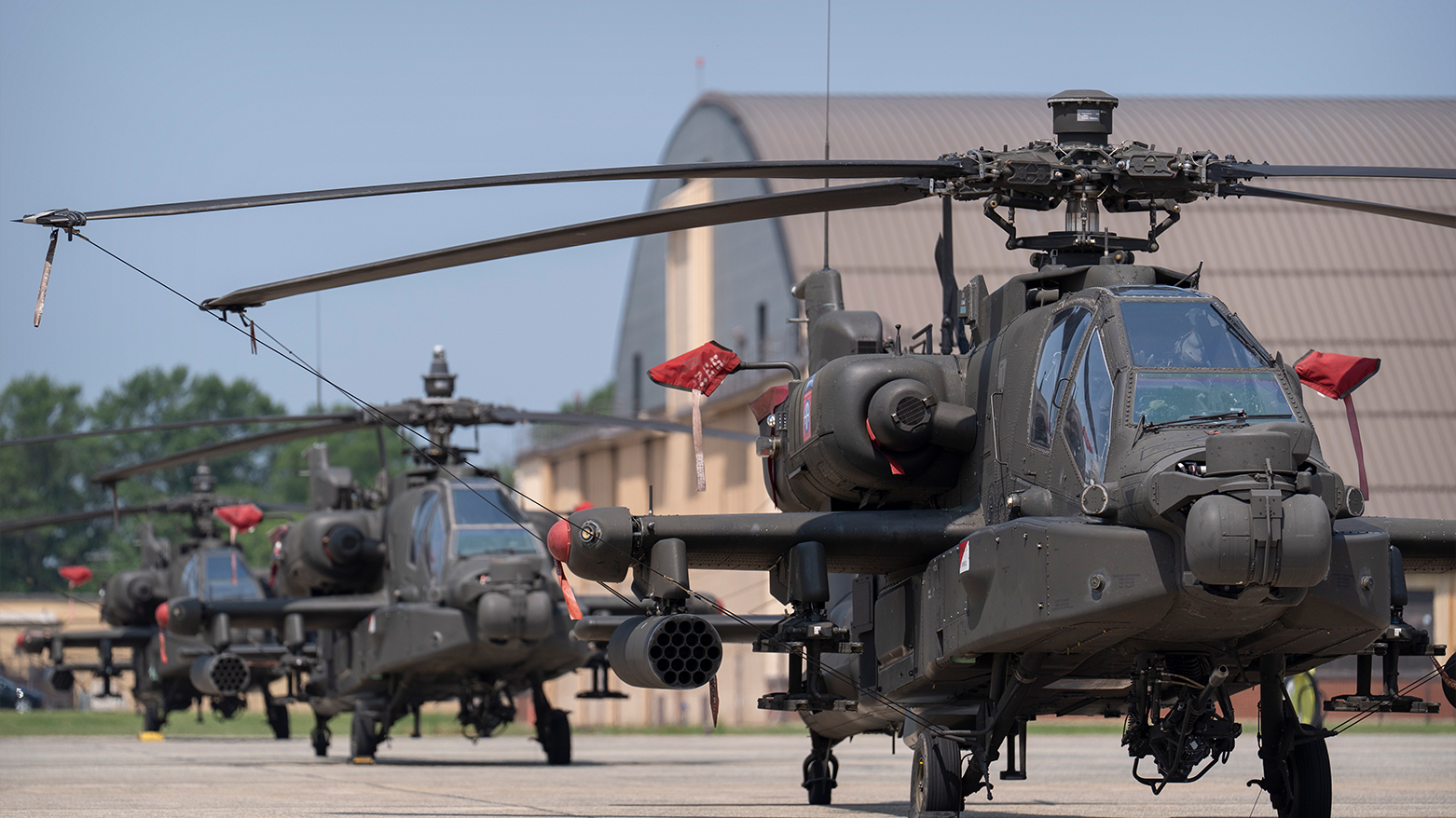Trump Administration Proposes Nearly $6 Billion in Arms Sales to Israel
The Trump administration has proposed a nearly $6 billion weapons sale to Israel, including 30 Apache helicopters and 3,200 infantry vehicles. The move is a strong show of support as Israel faces growing international isolation and condemnation over its escalating war in the Gaza Strip.

ERBIL (Kurdistan24) – In a powerful and unambiguous display of support for its key Middle Eastern ally, the Trump administration has formally notified the United States Congress of its plan to sell nearly $6 billion in advanced weaponry to Israel. The proposed sale, which includes attack helicopters and thousands of infantry assault vehicles, represents a fresh and substantial surge of military assistance at a moment when Israel is confronting deepening international isolation and widespread condemnation for its conduct in the nearly two-year-long war against Hamas in the Gaza Strip.
The massive arms package, detailed in reports by the Associated Press and The Times of Israel citing U.S. officials and other individuals familiar with the proposal, is comprised of two major components. The largest part of the deal is a $3.8 billion sale of 30 AH-64 Apache attack helicopters, a move that would nearly double Israel’s current inventory of the formidable aircraft.
The second component is a $1.9 billion sale of 3,200 infantry assault vehicles for the Israeli army. An additional $750 million worth of support parts for armored personnel carriers and power supplies is also reportedly working its way through the sale process, bringing the total value of the new military hardware to approximately $6 billion.
According to the officials, as per the AP report, who spoke on the condition of anonymity to discuss plans that have not yet been made public, the formal request was sent to Congress for review about a month ago. It is important to note, however, that the weapons would not be delivered for two to three years or longer, suggesting the sale is aimed at bolstering Israel's long-term strategic capabilities rather than providing an immediate battlefield advantage.
This significant show of American backing comes at a particularly fraught moment in the conflict and in Israel’s diplomatic relations. The announcement follows the recent stalling of U.S.-led efforts to broker a ceasefire and an end to the war, which was triggered by the Hamas-led attack on southern Israel in Oct. 2023.
Tensions in the region were further inflamed by a recent Israeli strike targeting Hamas leaders in Doha, Qatar, an action that drew widespread condemnation from U.S. allies in the Middle East and complicated the diplomatic landscape.
Israel has also recently launched a new and intense offensive, pressing forward with its plans to take over Gaza City, a move that has drawn strong international criticism and heightened concerns over the catastrophic humanitarian crisis in the besieged enclave.
The Associated Press noted that a professional organization of scholars studying genocide has asserted that Israel is committing genocide in Gaza, a claim that has amplified the pressure on Israel and its international partners.
The Trump administration’s decision to move forward with the sale underscores its commitment to Israel’s security despite this mounting international and domestic pressure. The United States has maintained its robust support even as a growing number of U.S. Senate Democrats have attempted to block the sale of offensive weapons to Israel over concerns about their use in Gaza.
This policy stands in contrast to the previous administration, which had paused a shipment of 2,000-pound bombs to Israel due to worries about civilian casualties. President Donald Trump lifted that hold upon taking office in January.
The growing international censure of Israel’s military campaign has become increasingly tangible. The United Kingdom, which last year announced it was suspending the export of some weapons to Israel out of concern they could be used to violate international humanitarian laws, recently took the step of barring Israeli government officials from attending the country’s largest arms fair.
Türkiye, another key regional power, announced it was closing its airspace to Israeli government planes and any cargo carrying arms for the Israeli military. In Europe, Italian Prime Minister Giorgia Meloni delivered a speech in which she condemned Israeli attacks on Gaza as disproportionate.
The strained relationship with Türkiye is particularly notable given that President Trump announced on Friday that he plans to meet with Turkish President Recep Tayyip Erdogan in Washington next week to discuss aircraft purchases and a deal for F-16 fighter jets.
The Times of Israel reported that Trump has shown a fondness for Erdogan, a dynamic that exists despite Israeli misgivings over the Turkish leader's vocal support for Hamas.
The proposed $6 billion package is the latest in a series of major military assistance approvals for Israel under the Trump administration this year, which have already totaled approximately $12 billion. Most recently, in June, the U.S. approved a half-billion-dollar arms sale to resupply Israel’s military with precision bomb guidance kits. The State Department has declined to comment on the latest proposed sales.
The process for such a large arms transfer involves a routine, albeit critical, review by the U.S. Congress. The request is currently undergoing informal reviews at the committee level before it is sent back to the State Department for the more formal and public notification process.
According to both the Associated Press and The Times of Israel, these sales are part of a 10-year security assistance agreement between the United States and Israel that is nearing its end, highlighting the long-standing and institutionalized nature of the defense relationship between the two countries.
While the delivery of the helicopters and vehicles is years away, the political signal sent by the administration’s decision to advance the sale at this moment is immediate, serving as a powerful reaffirmation of the enduring U.S.-Israel alliance in the face of escalating global criticism.